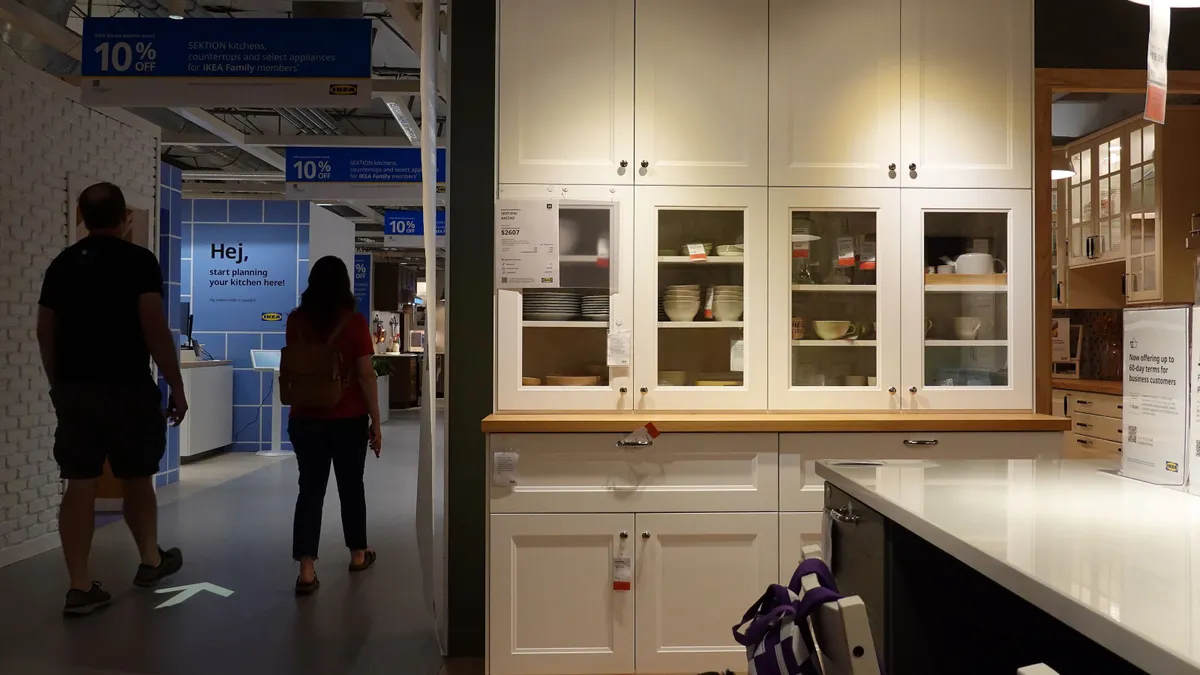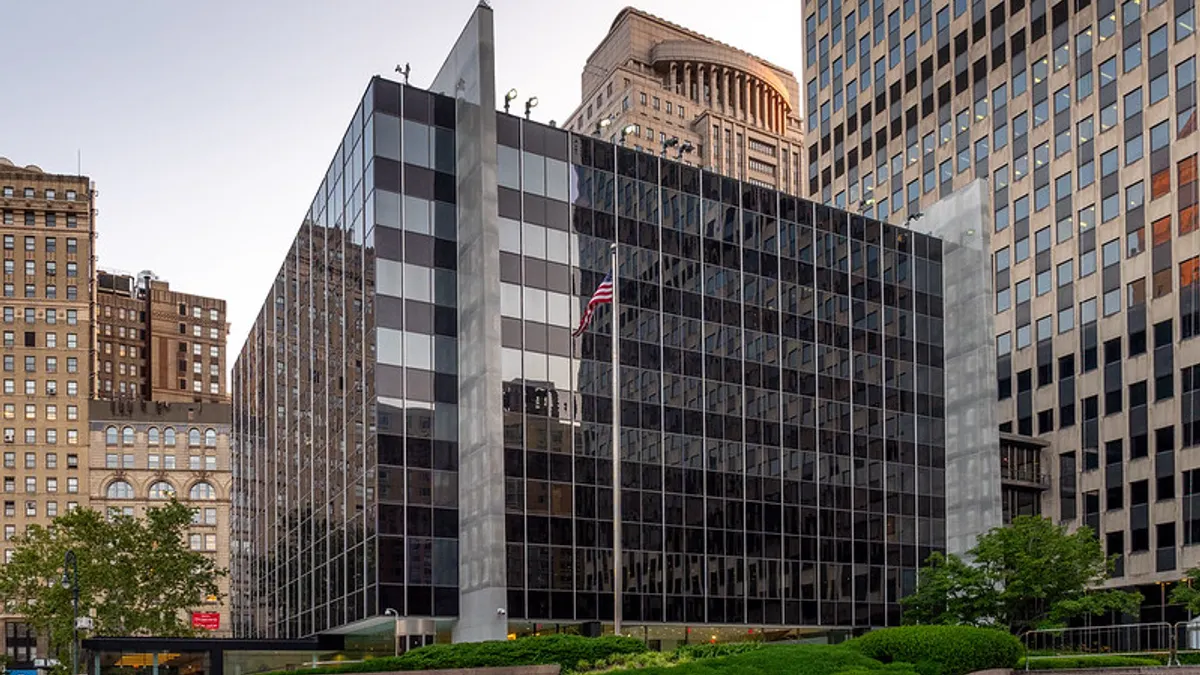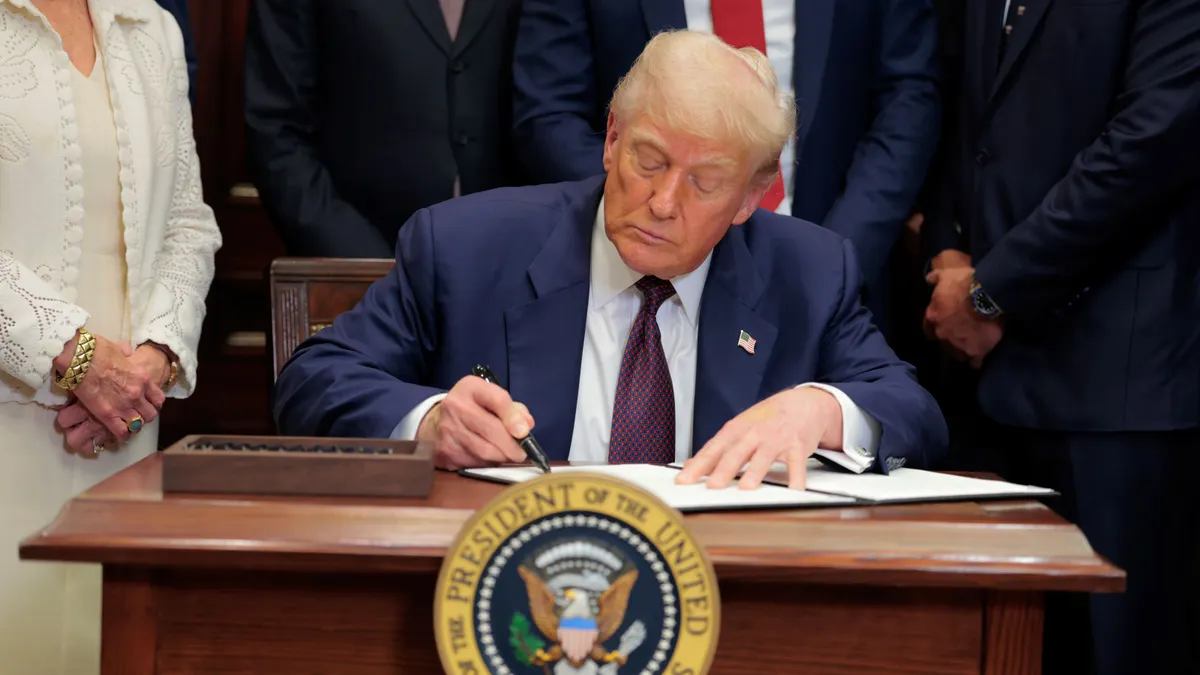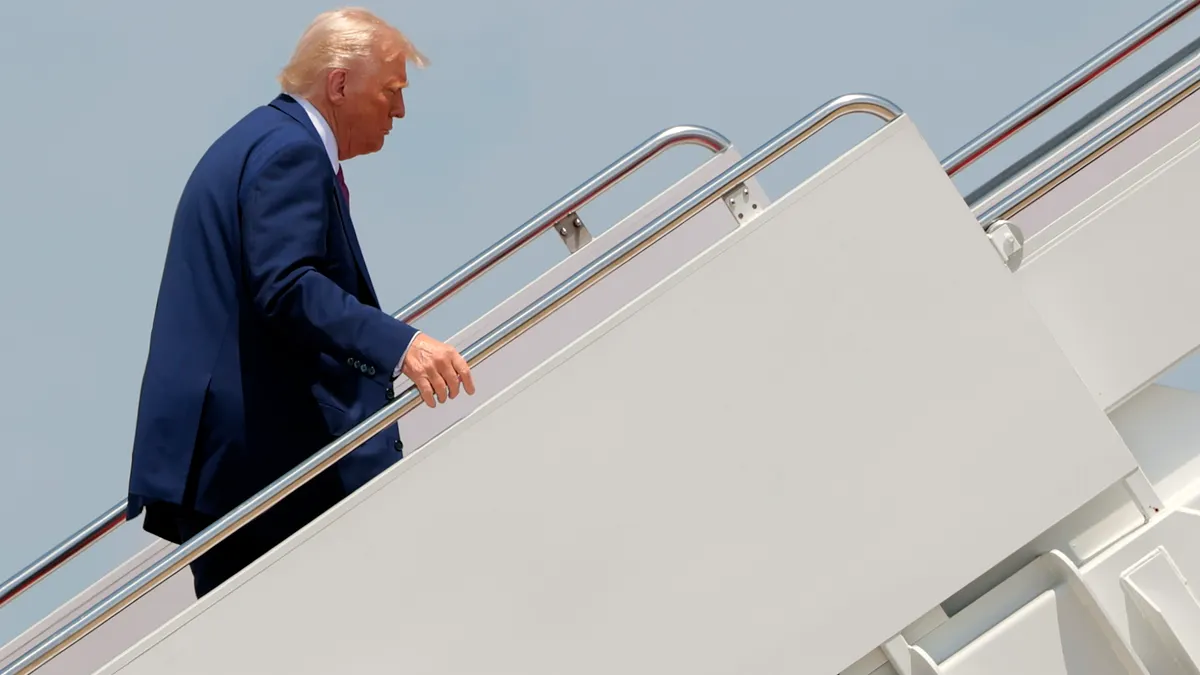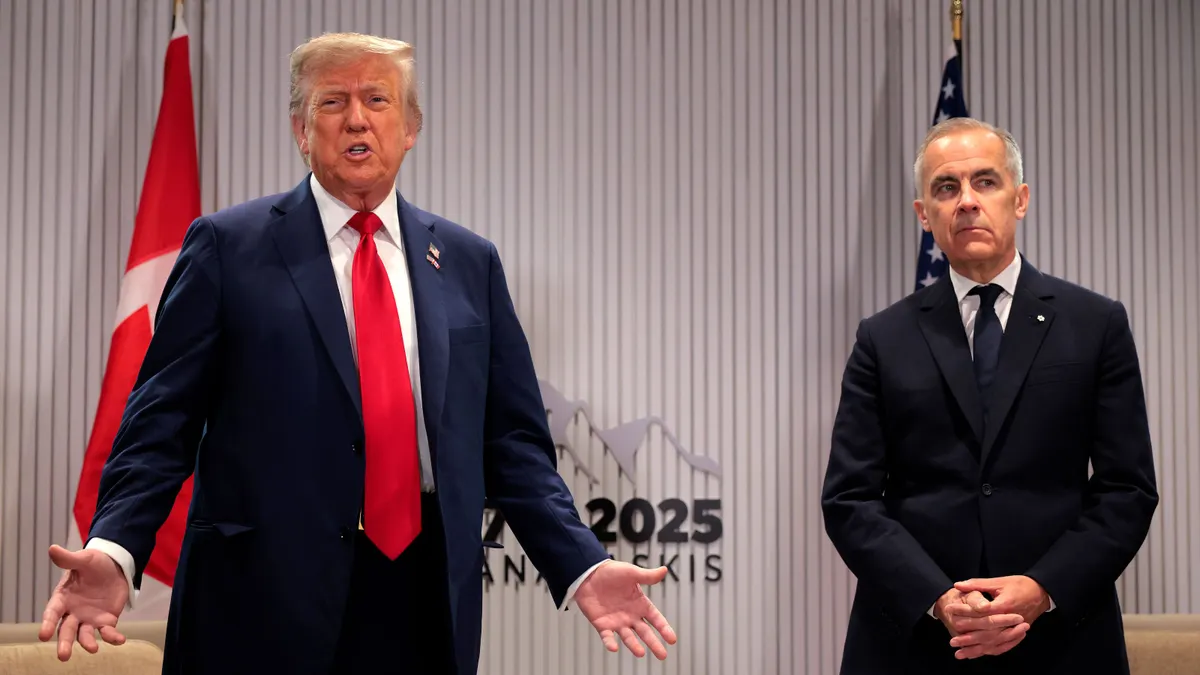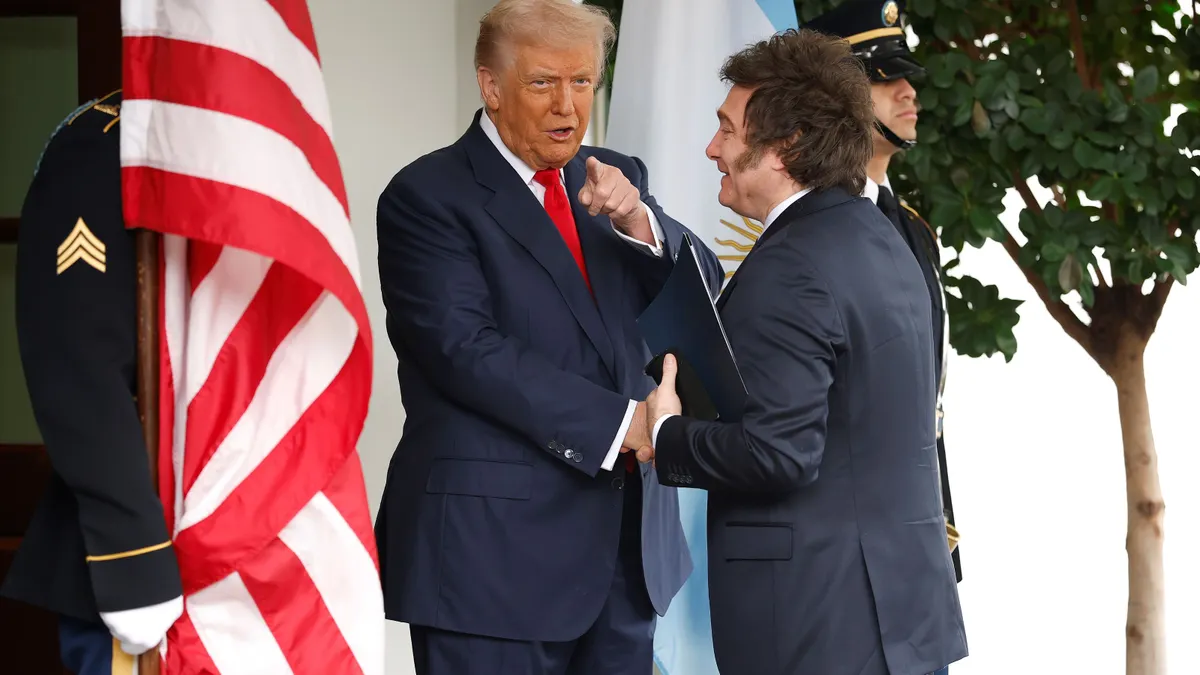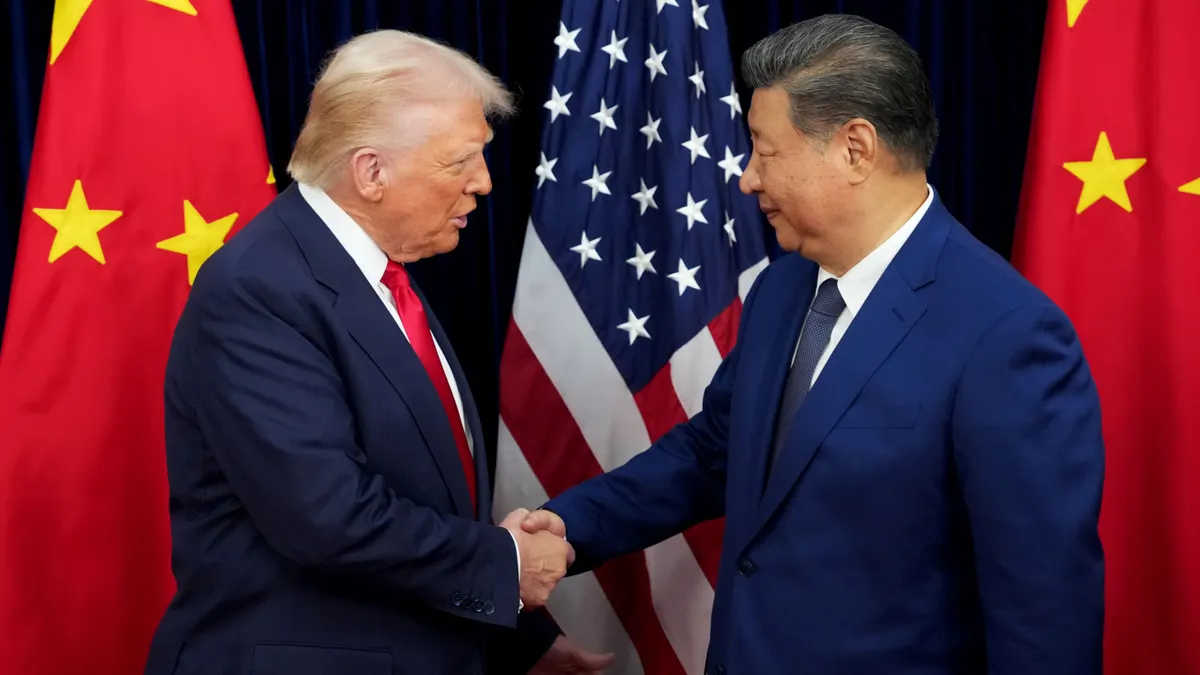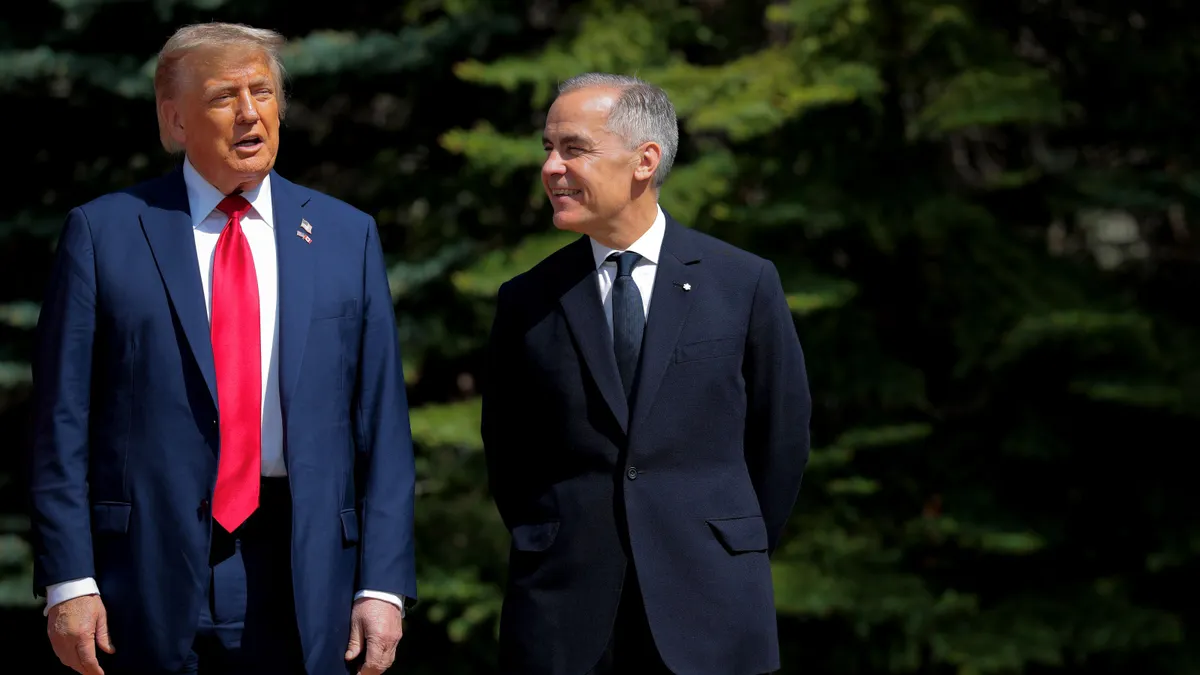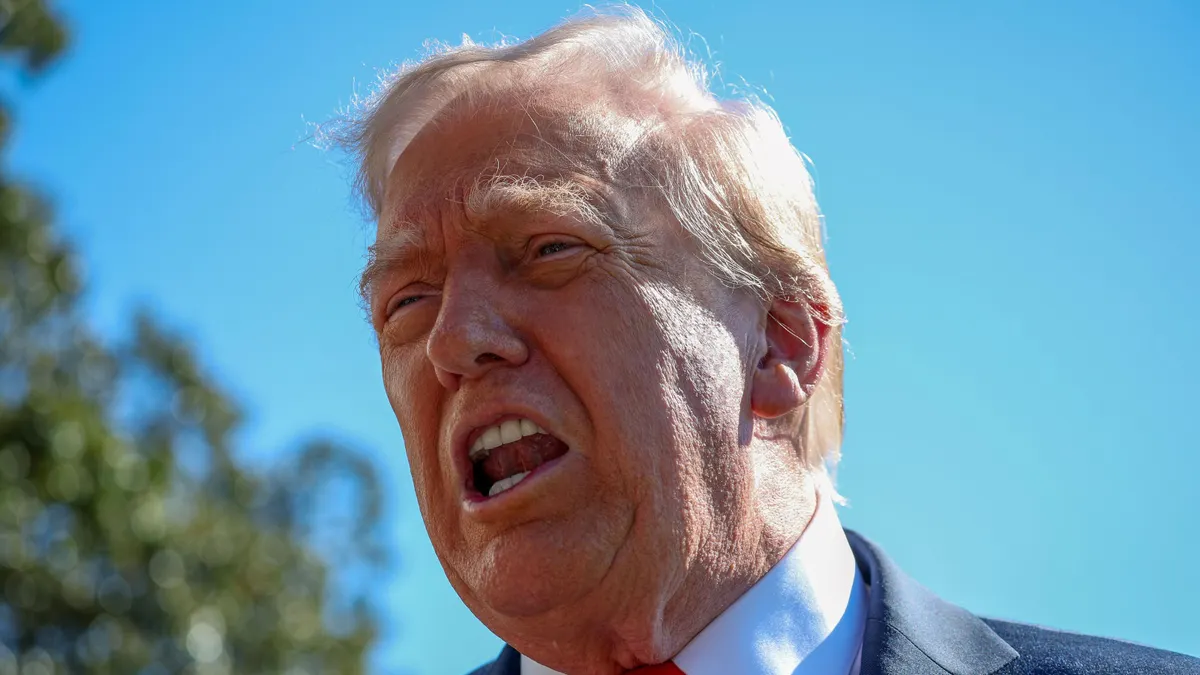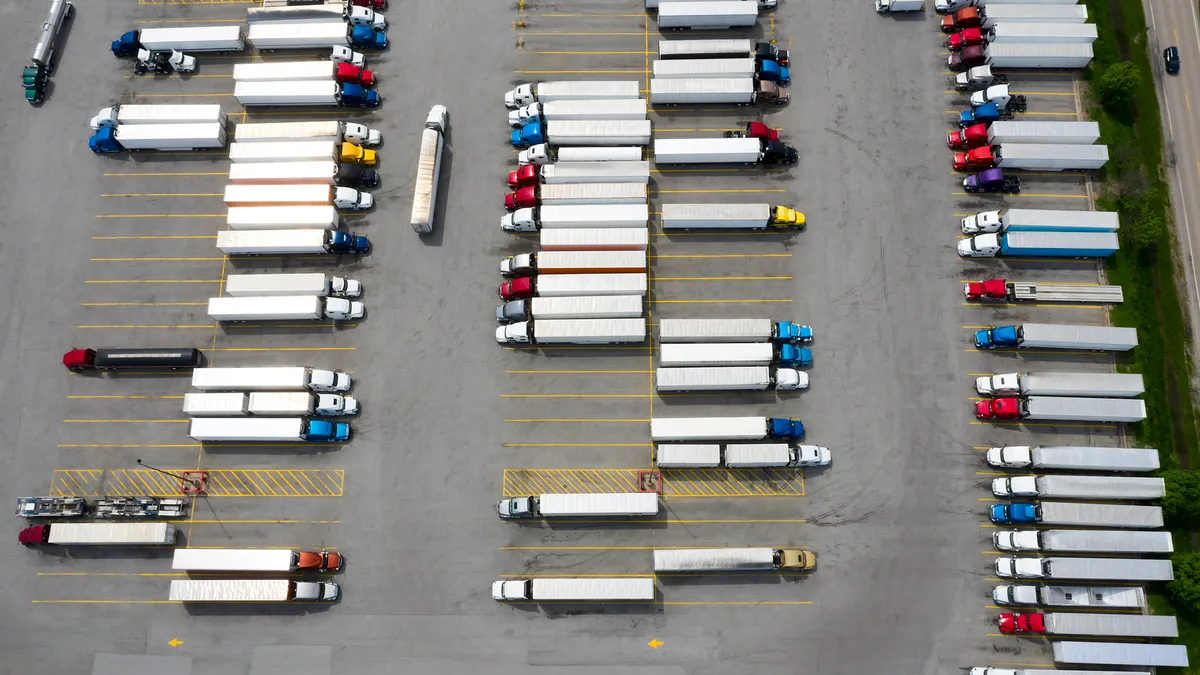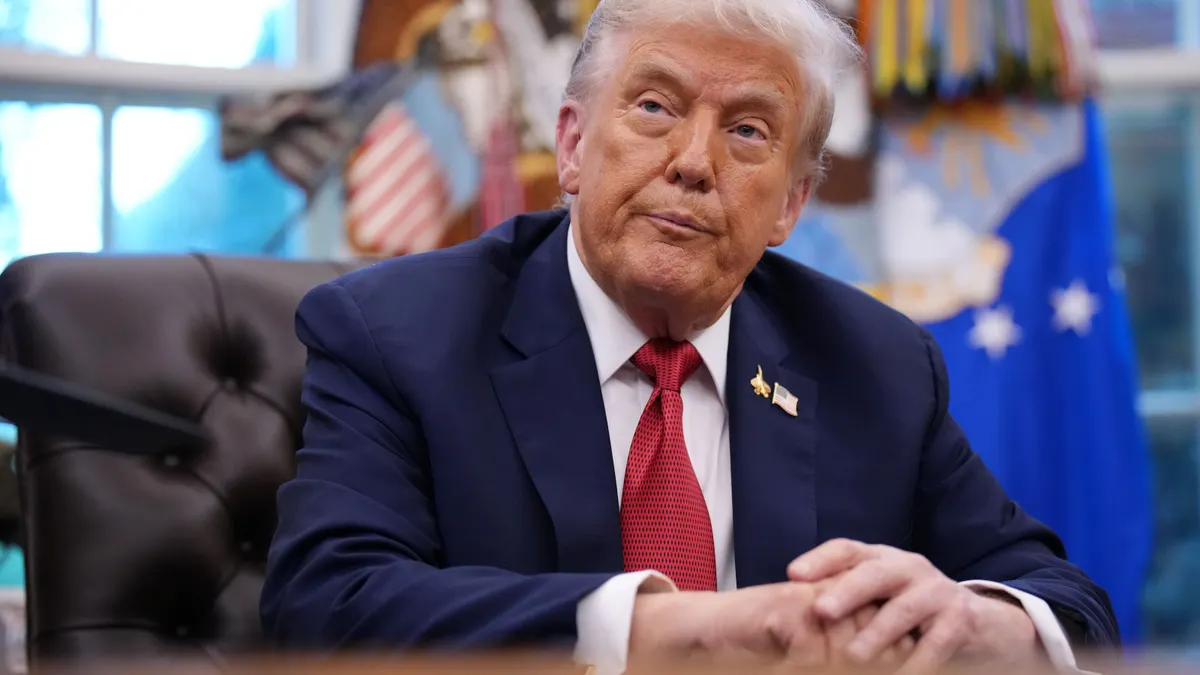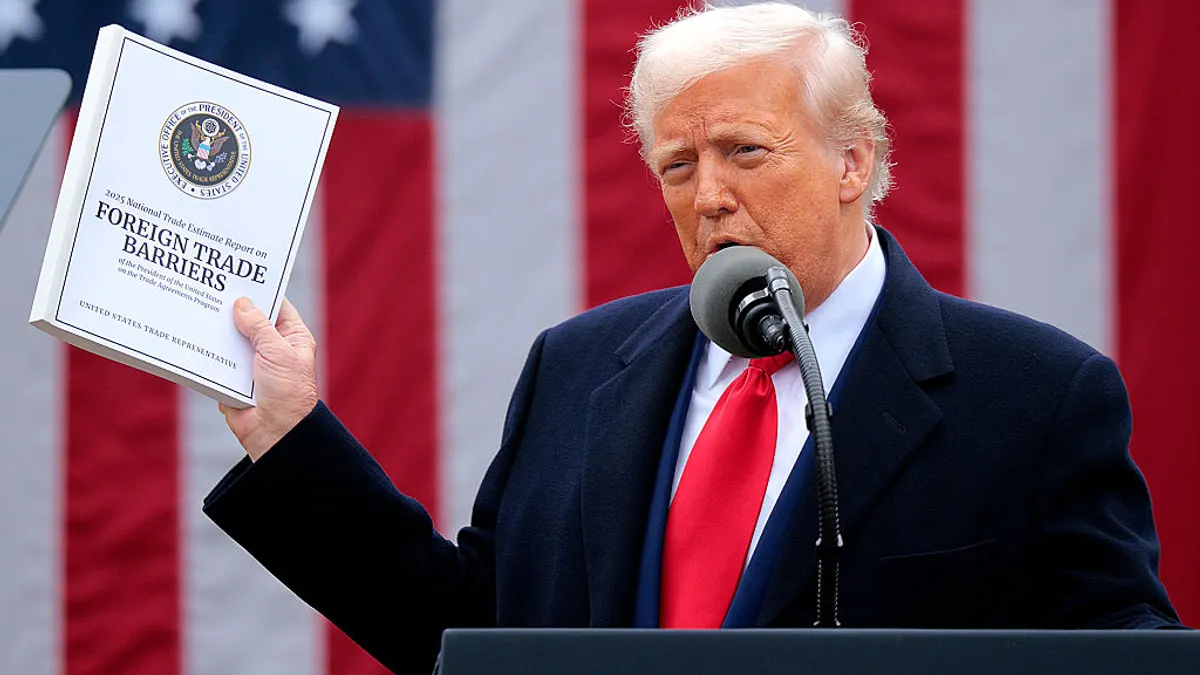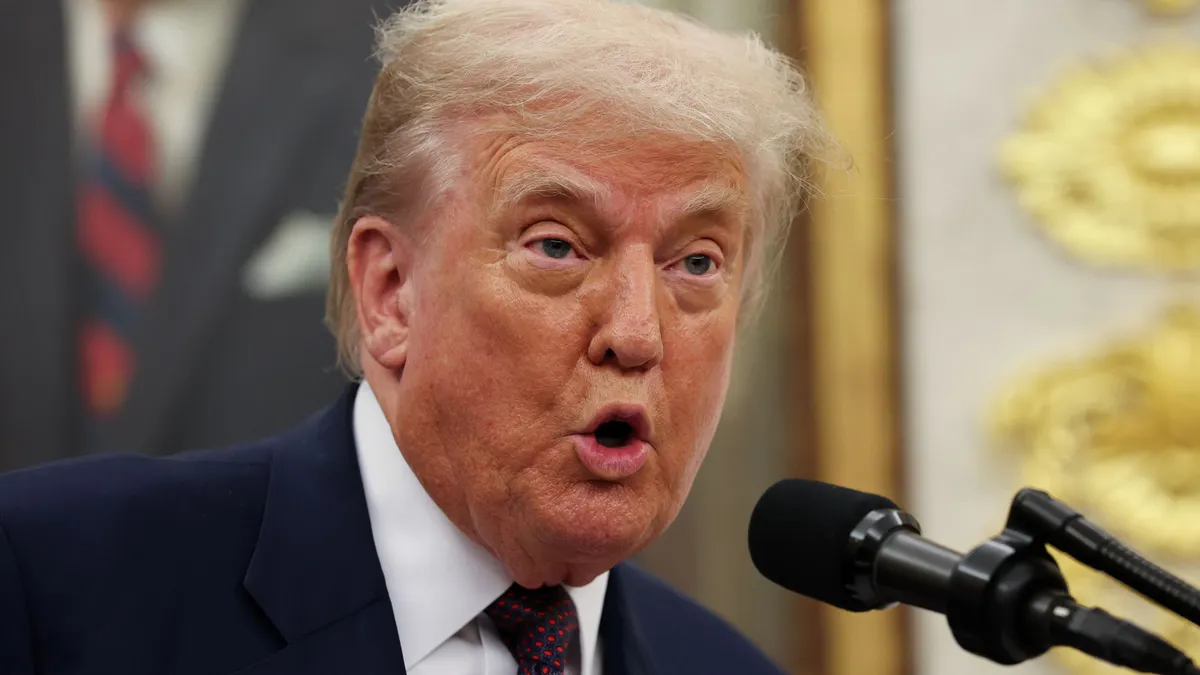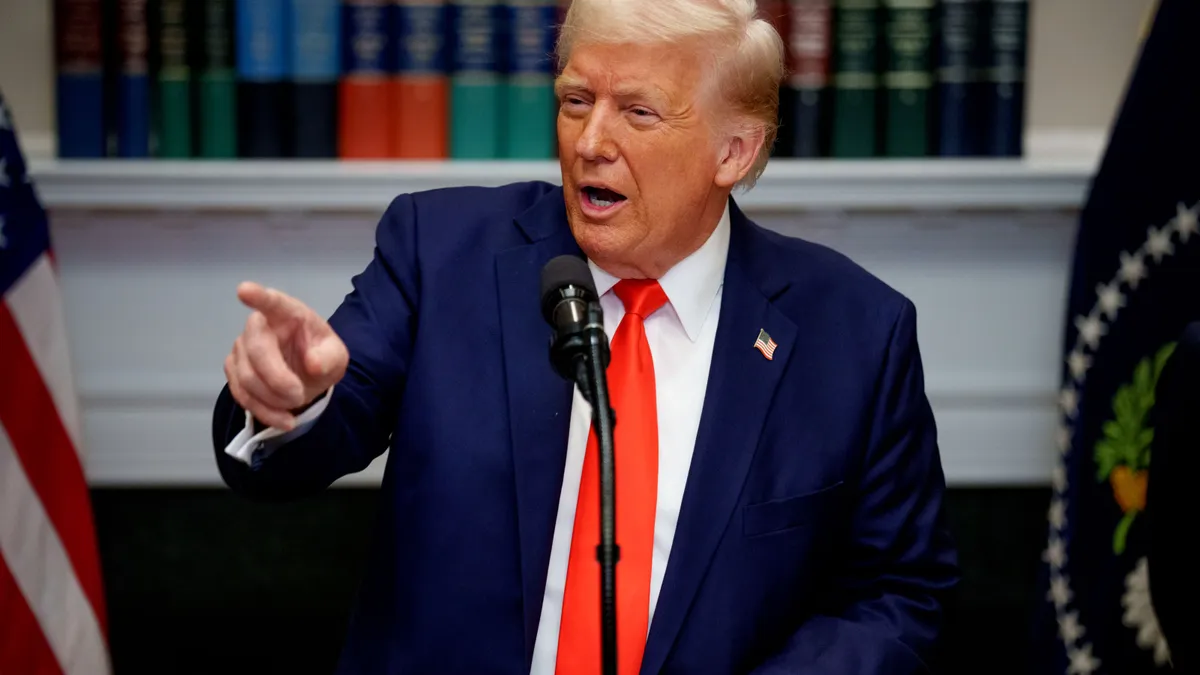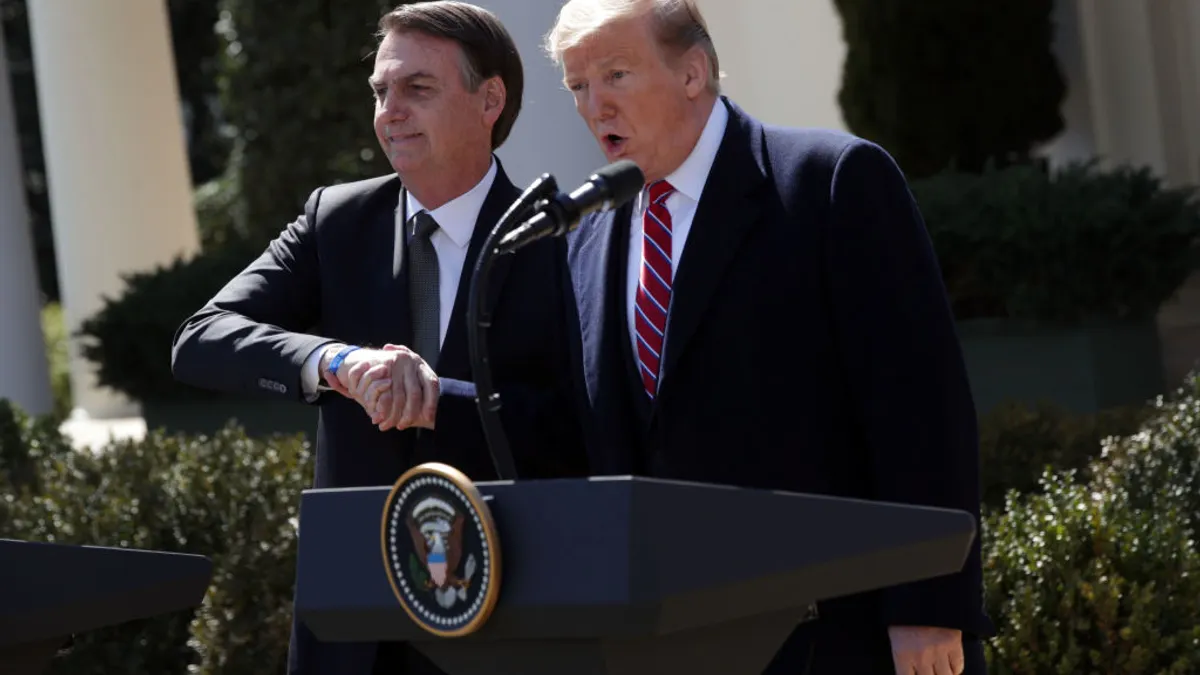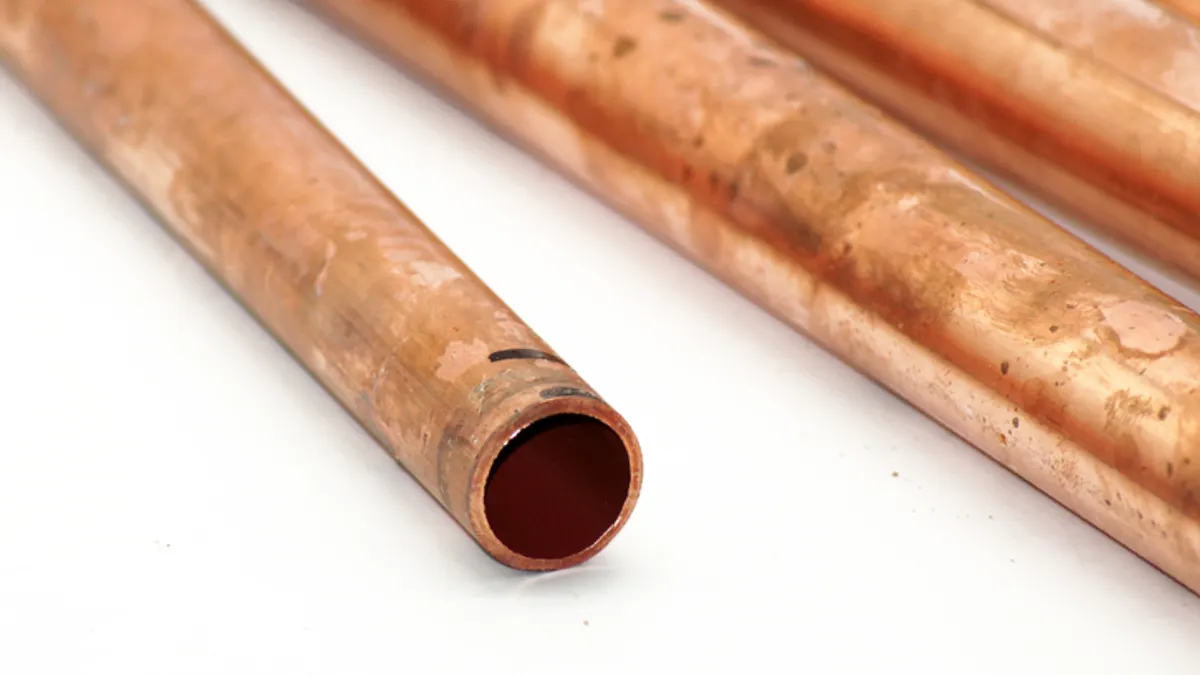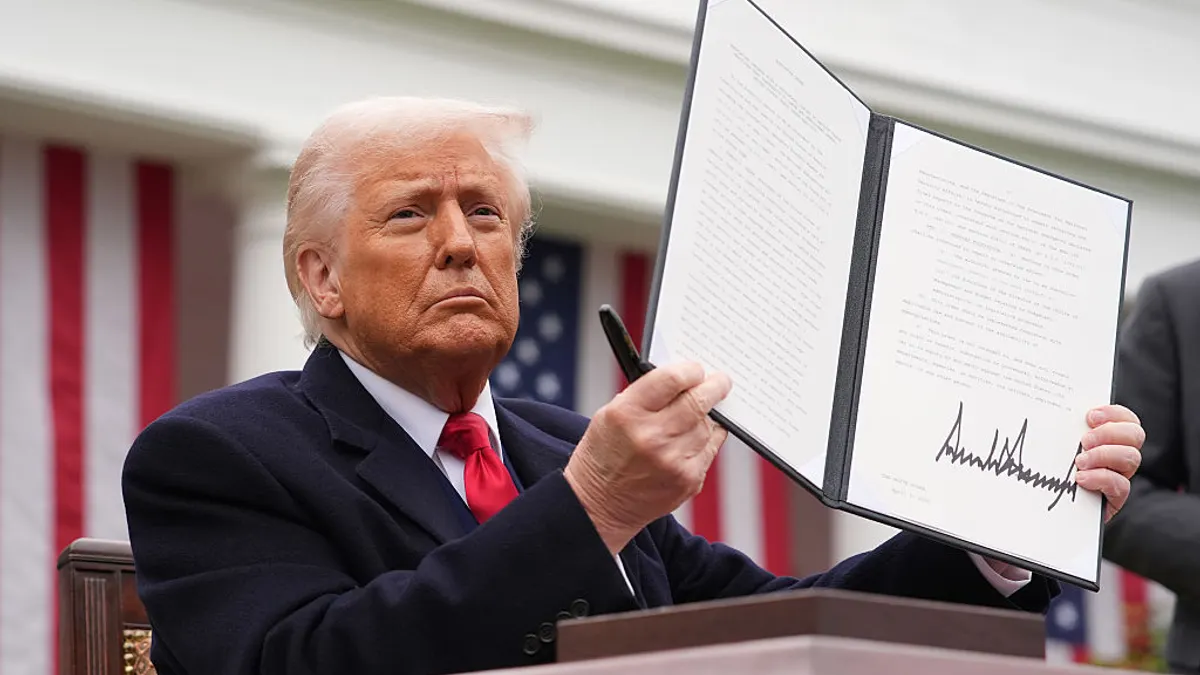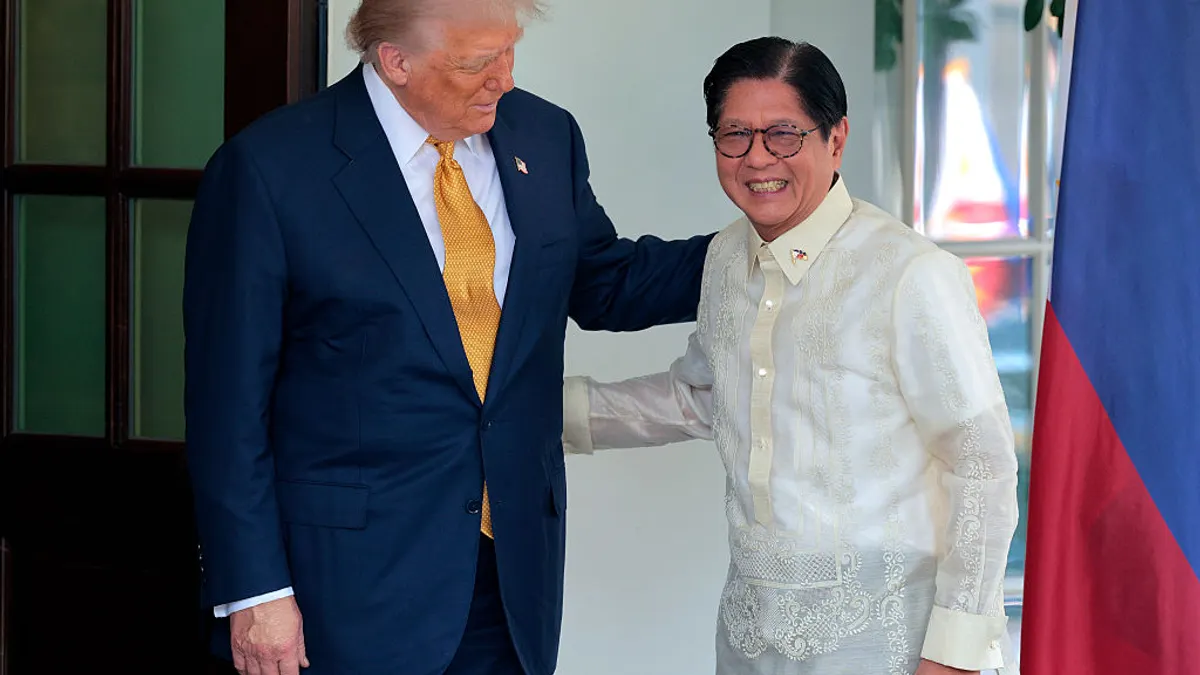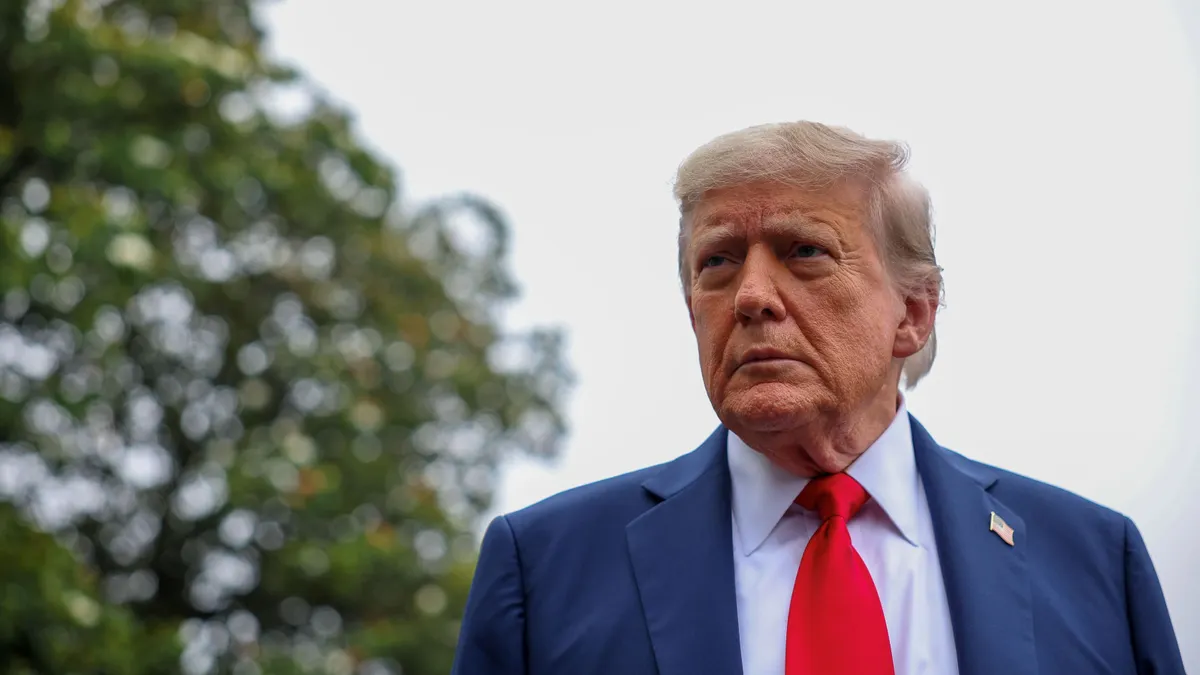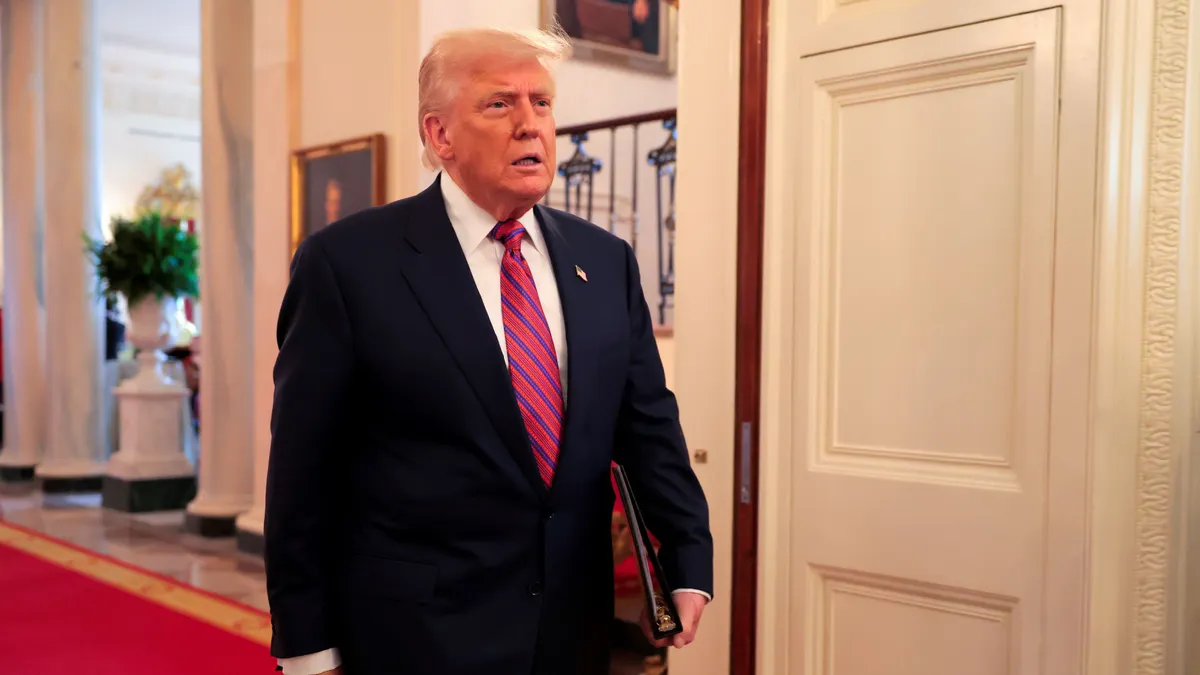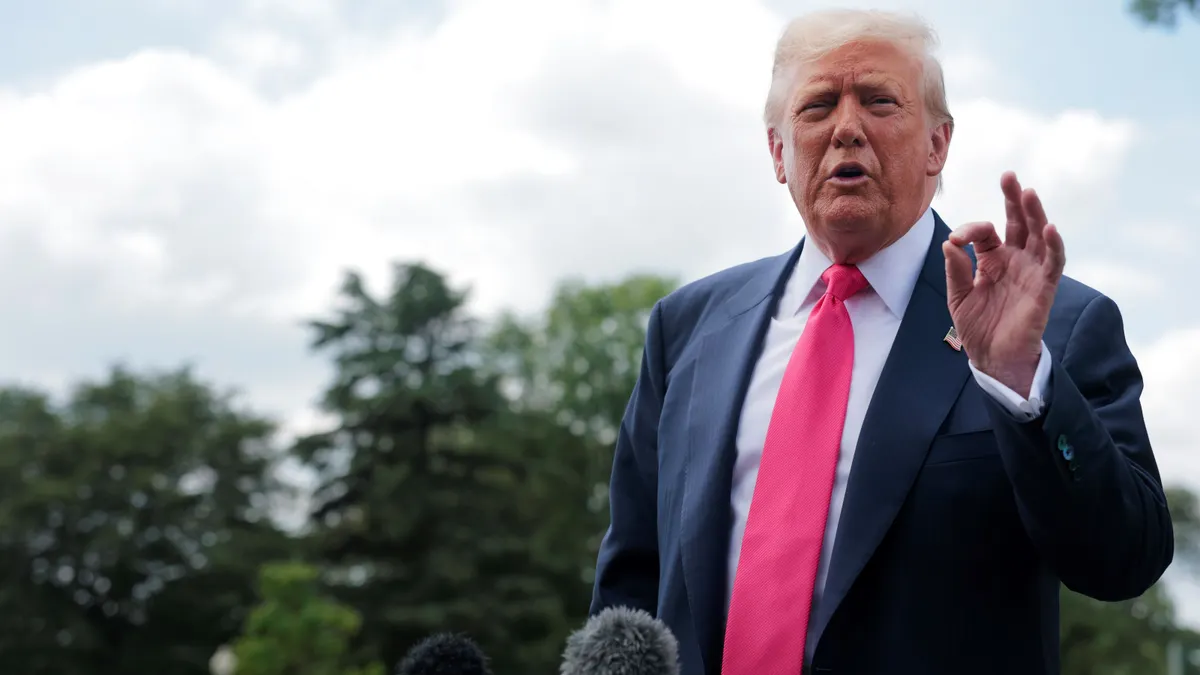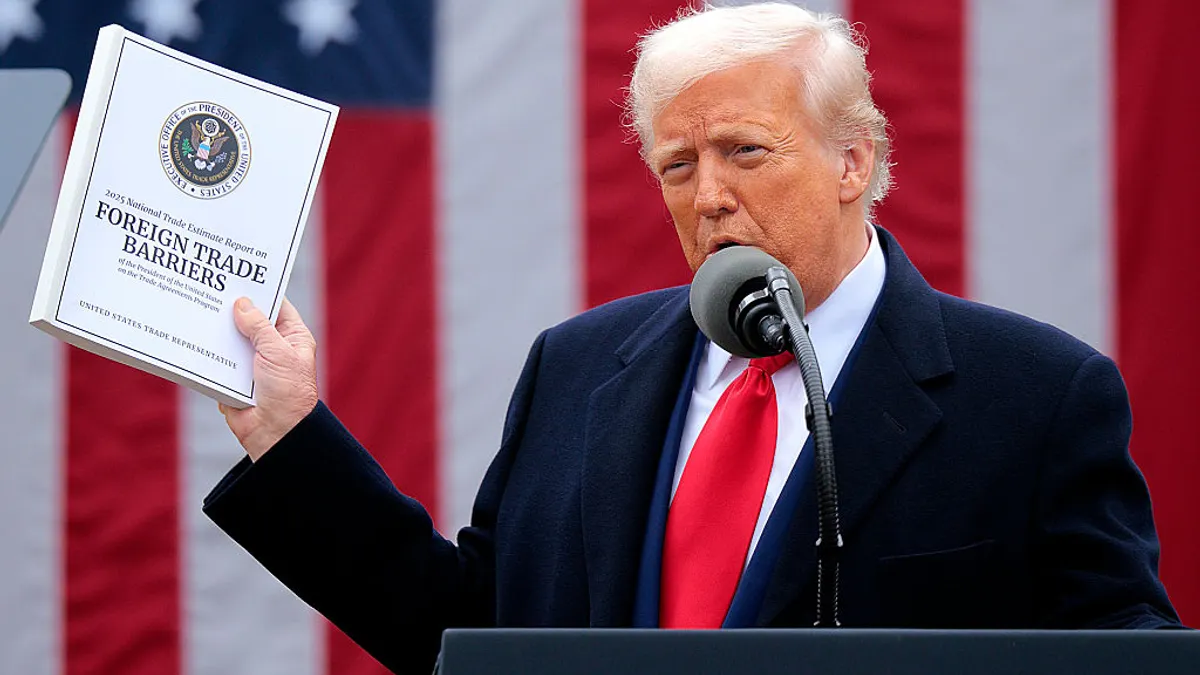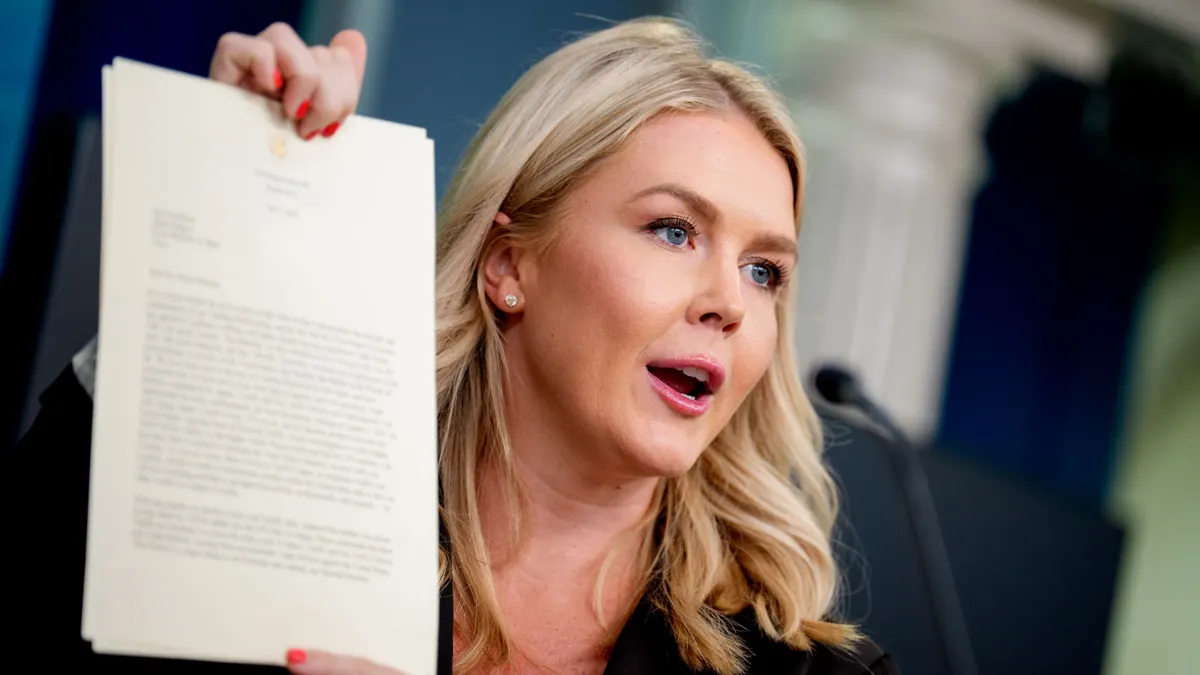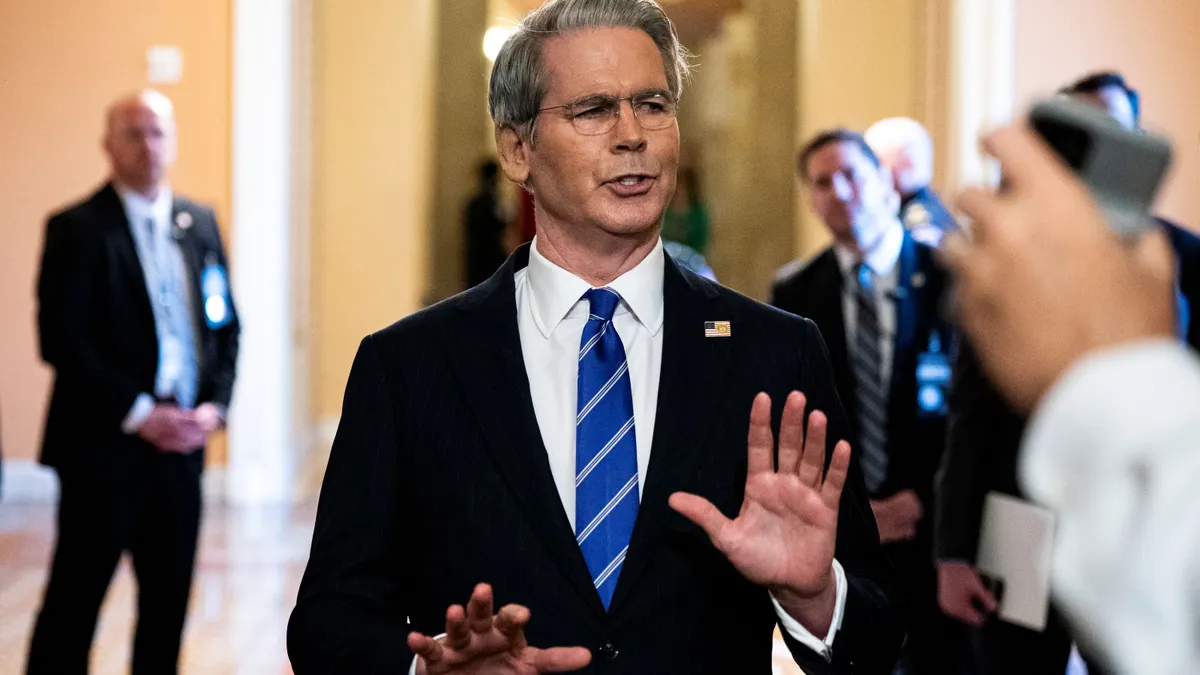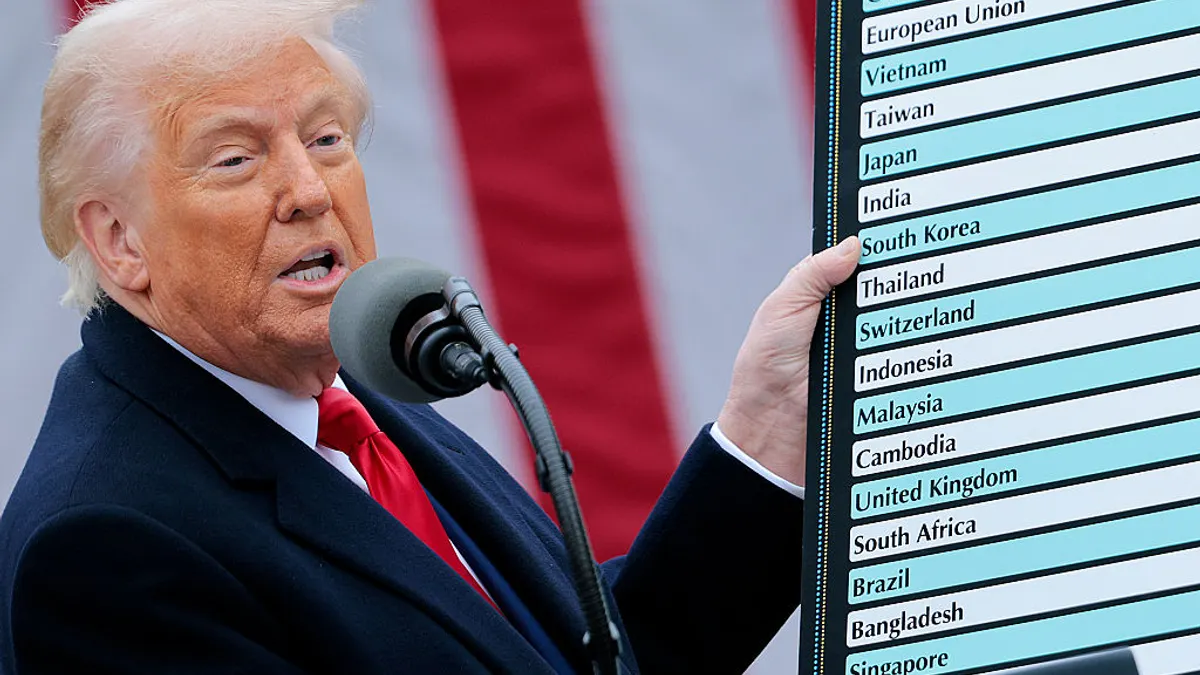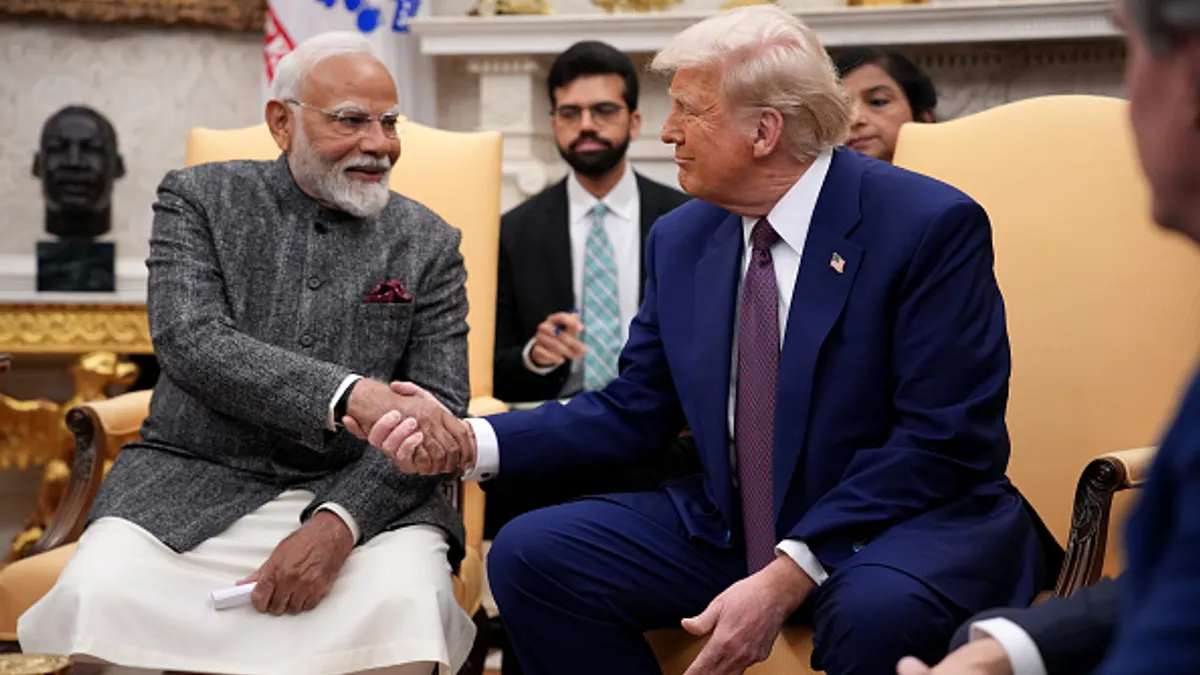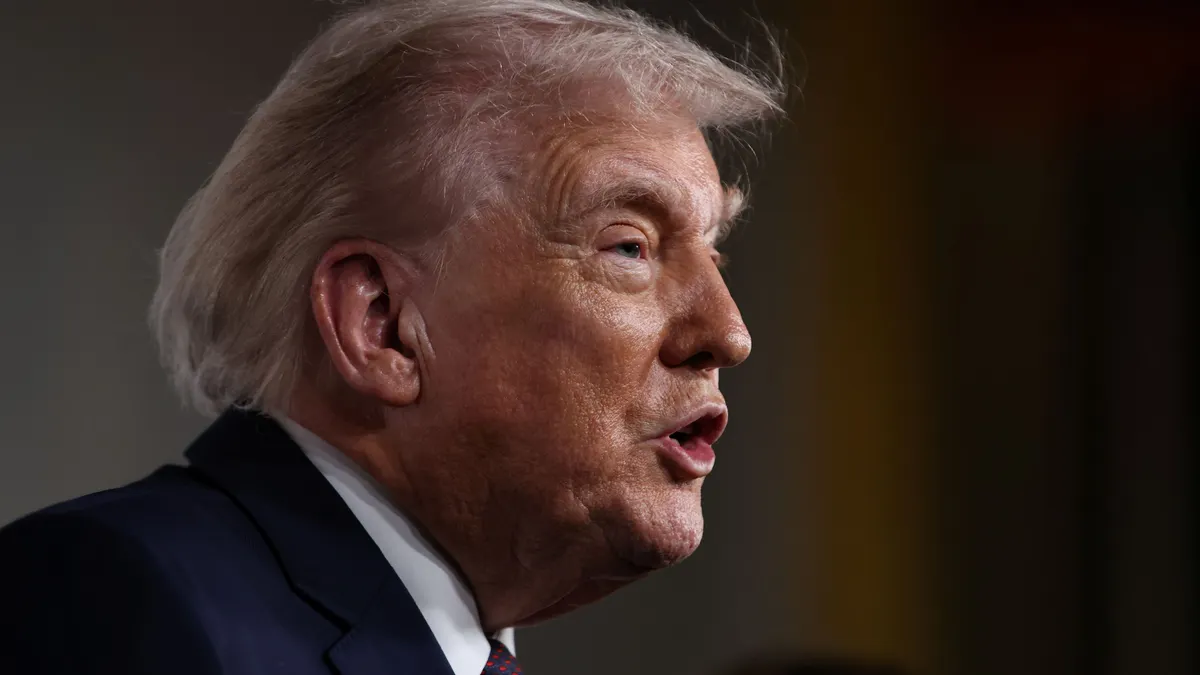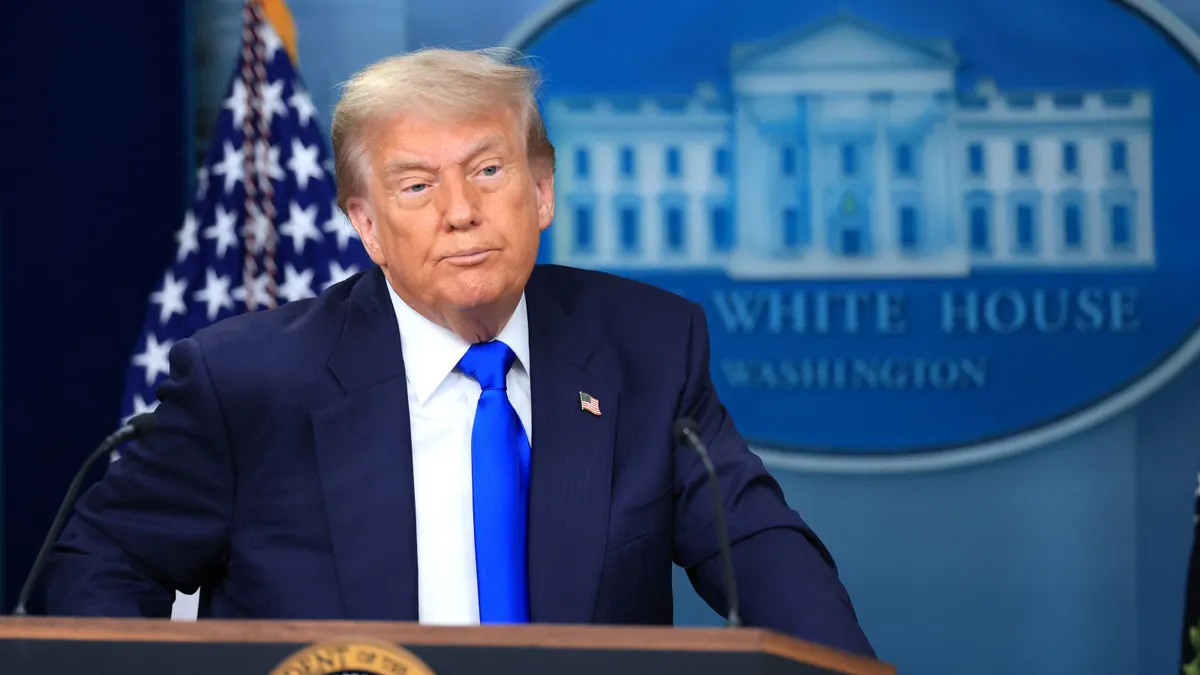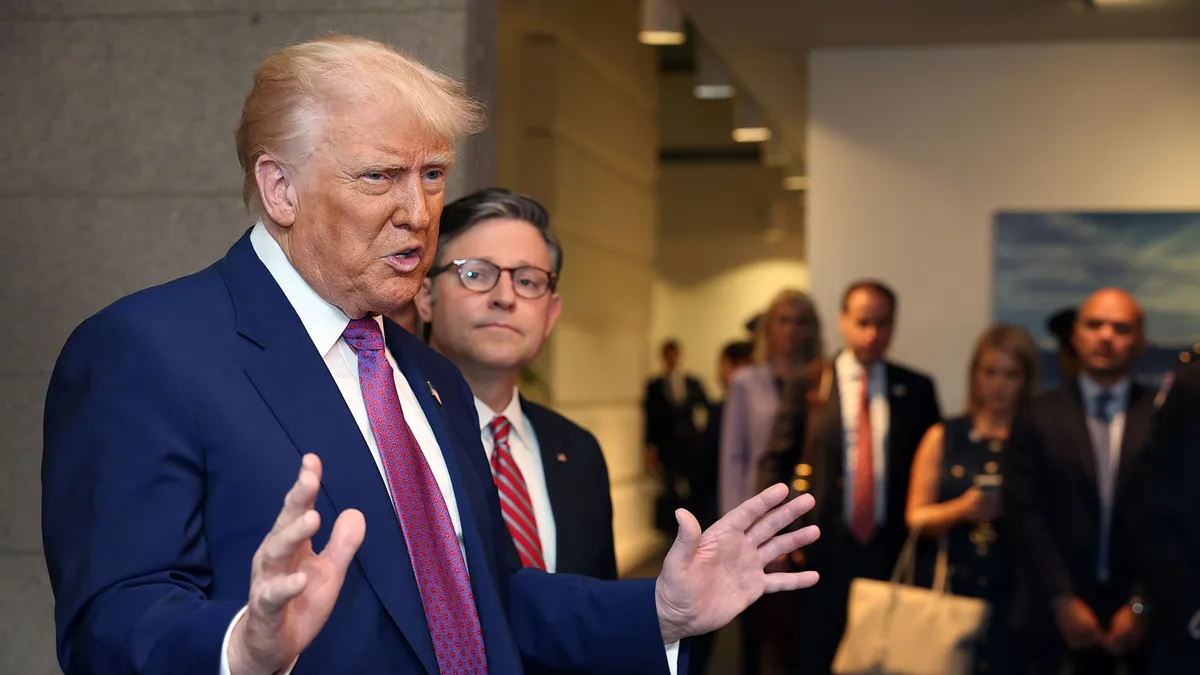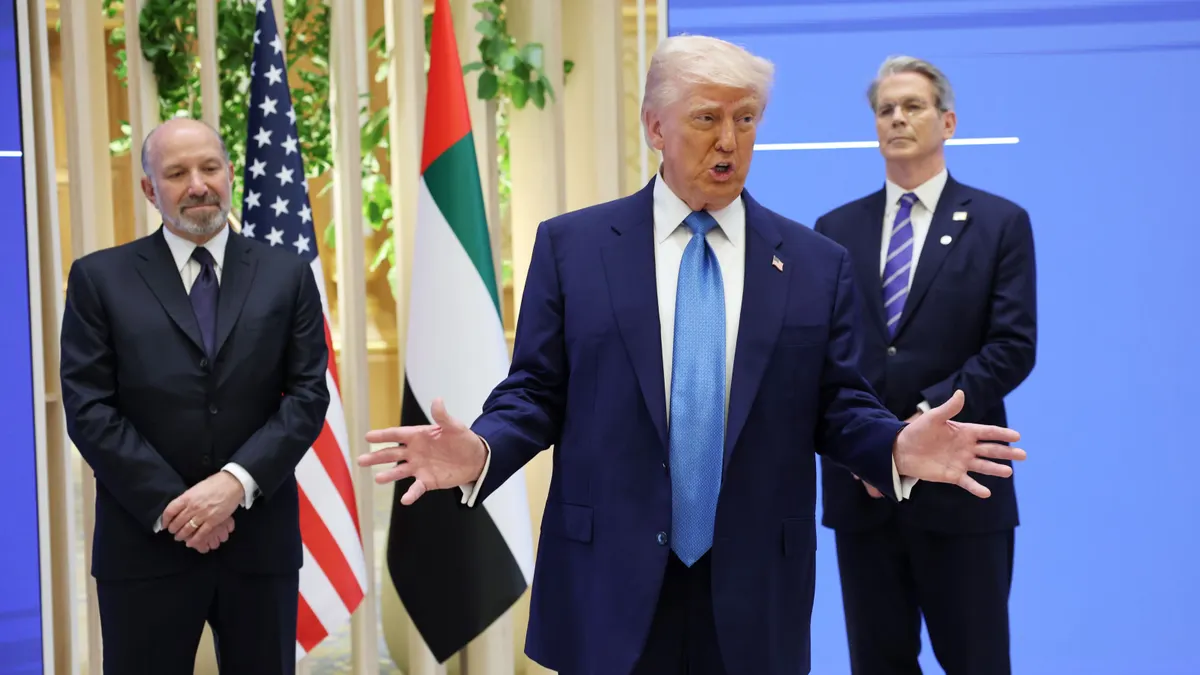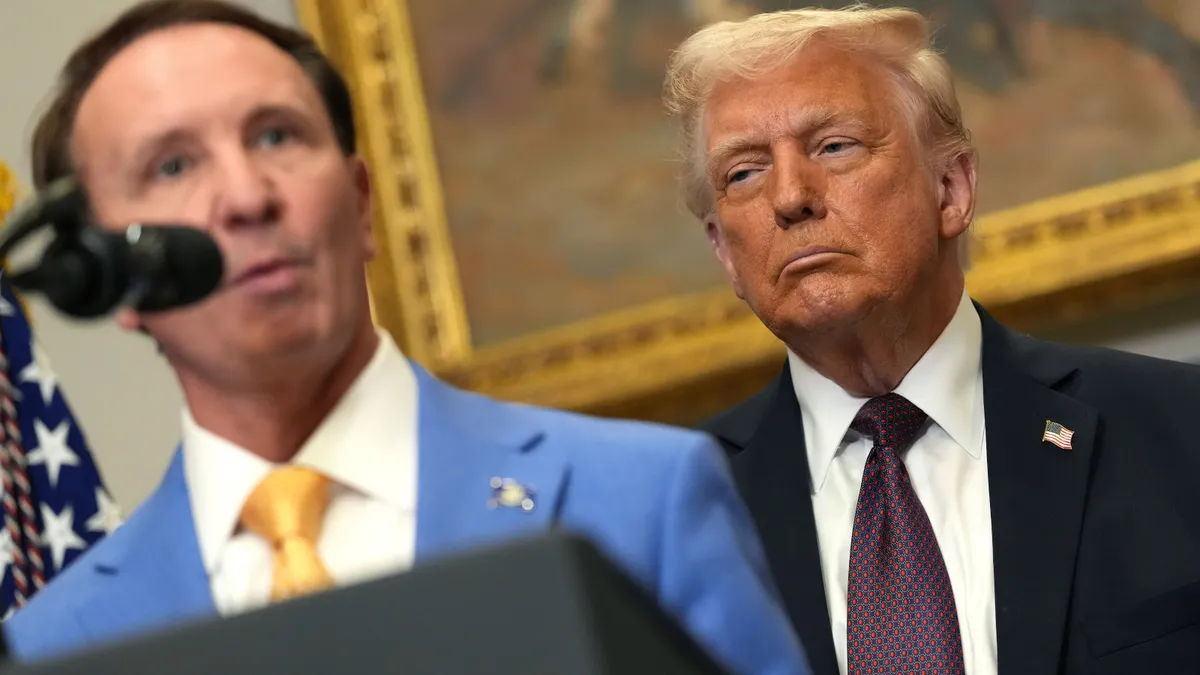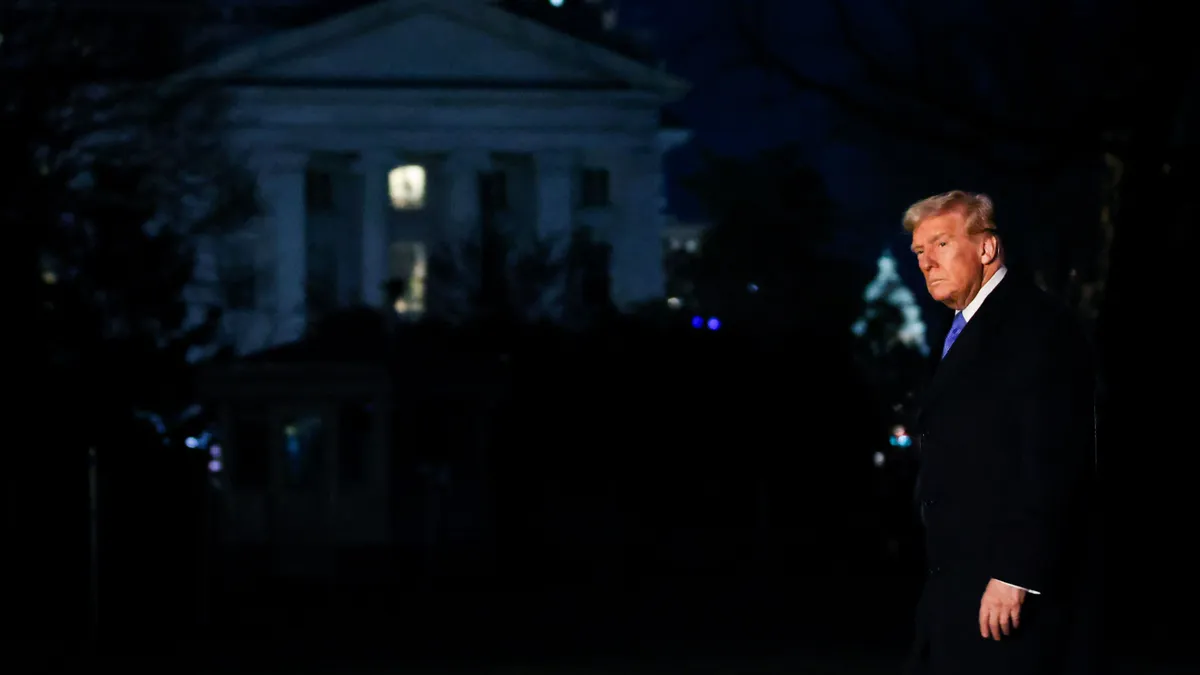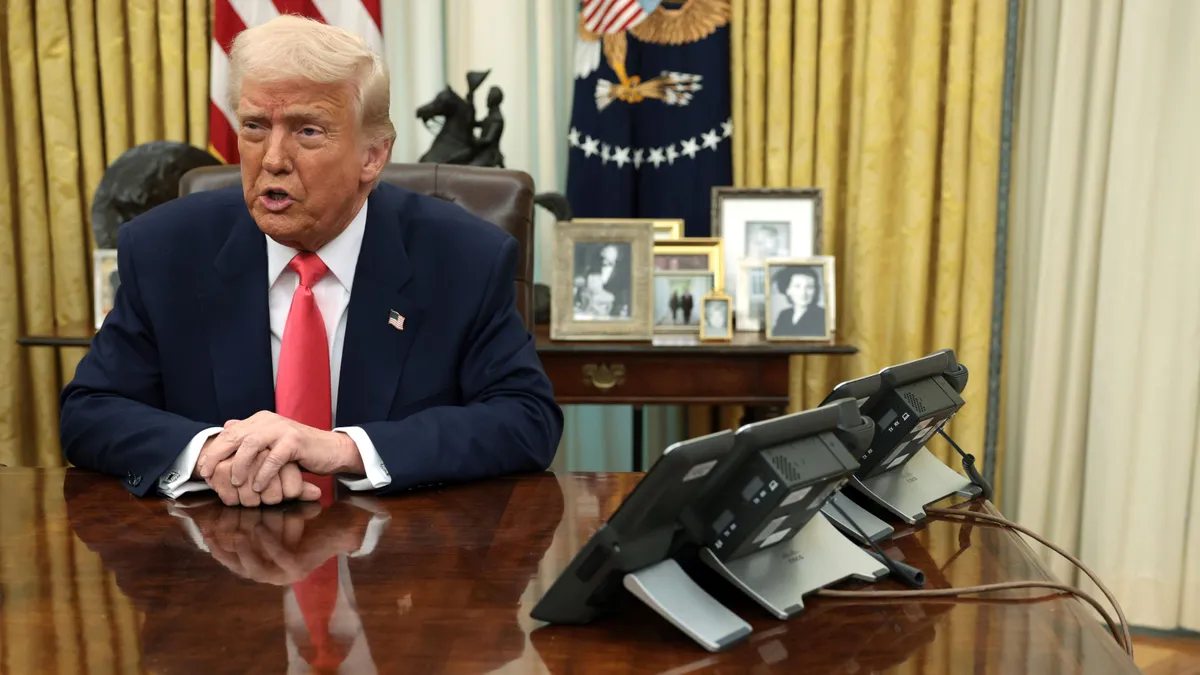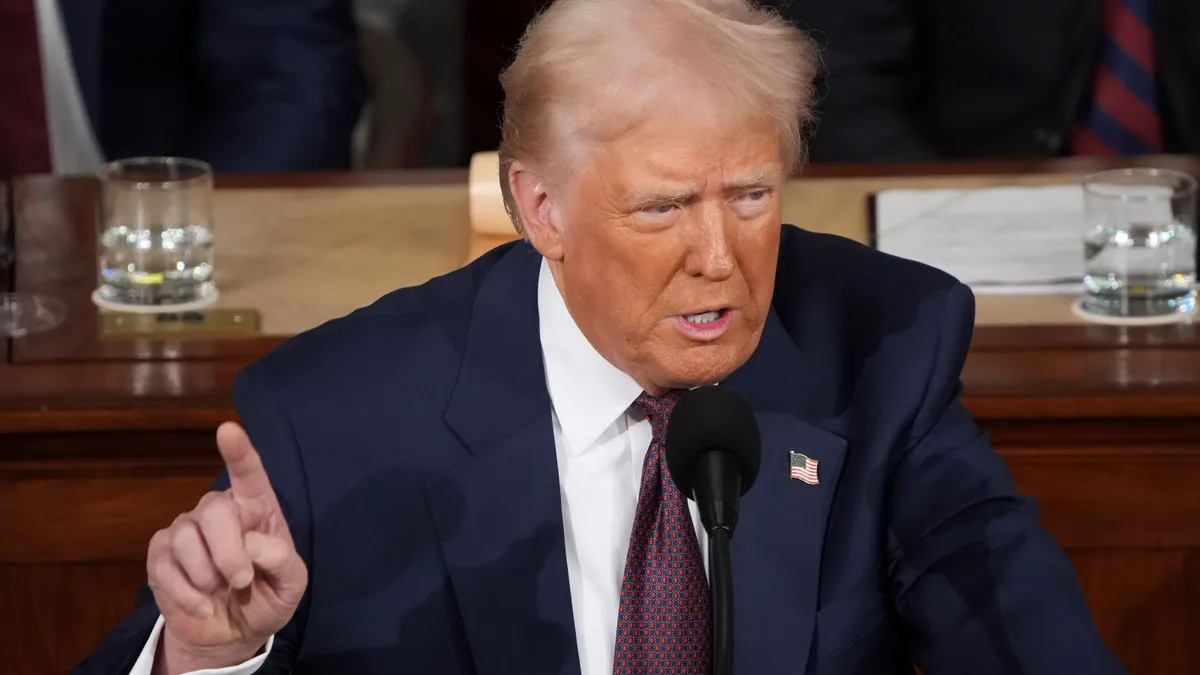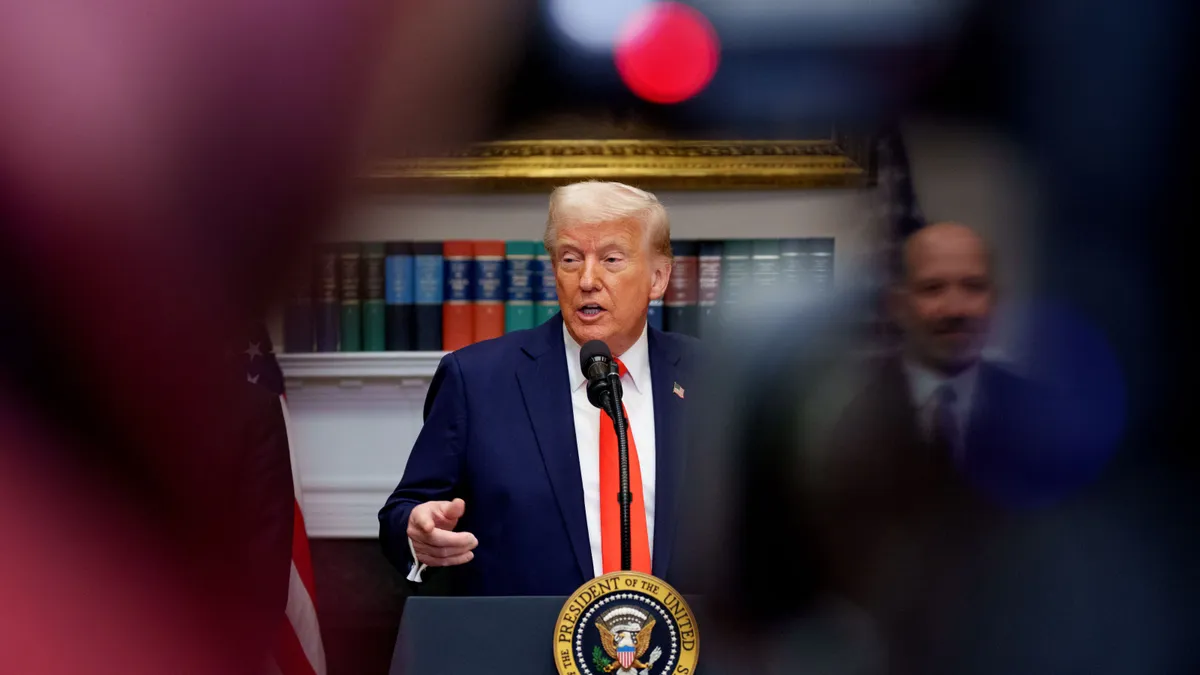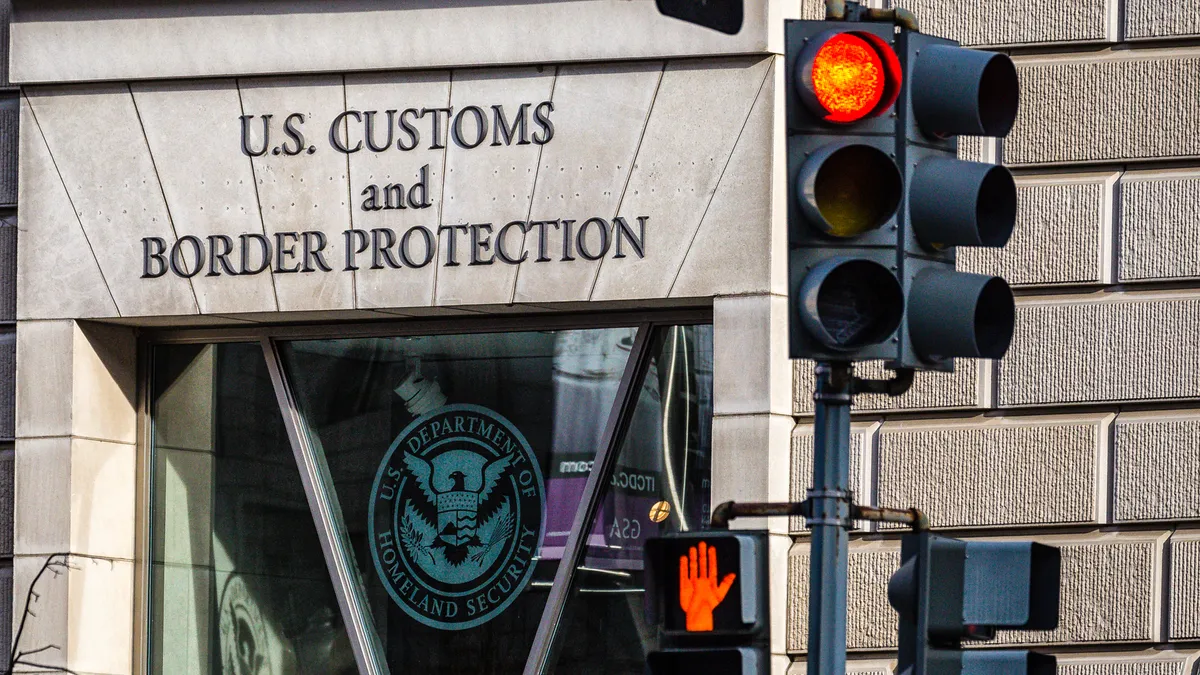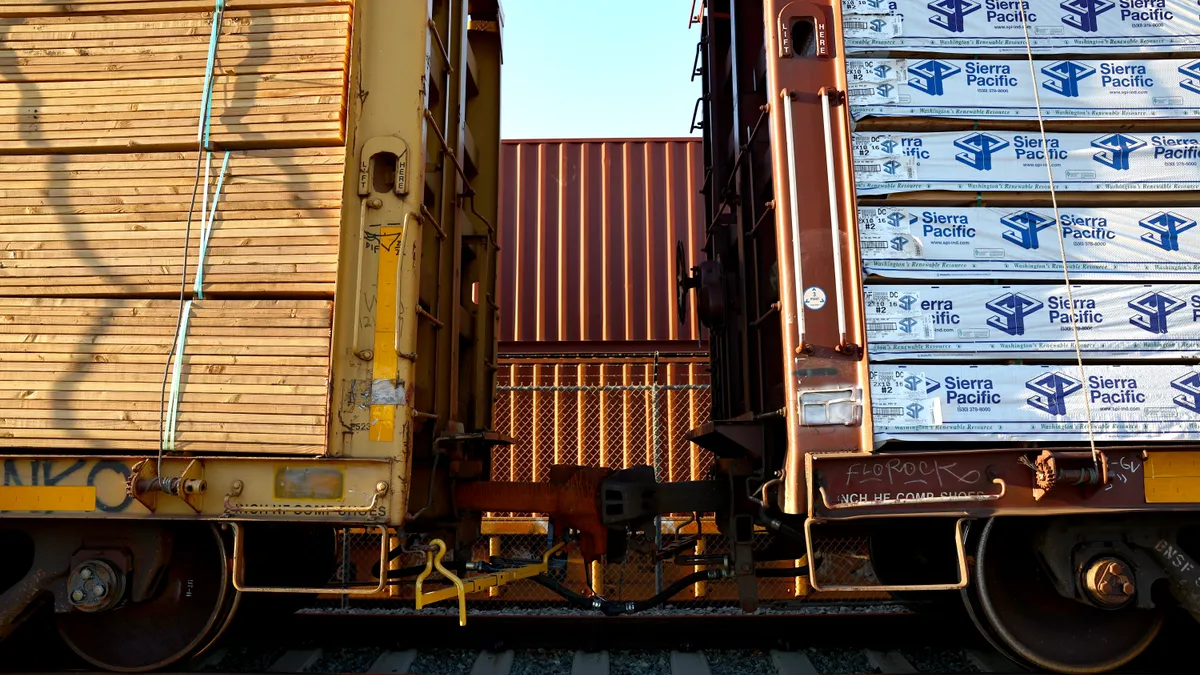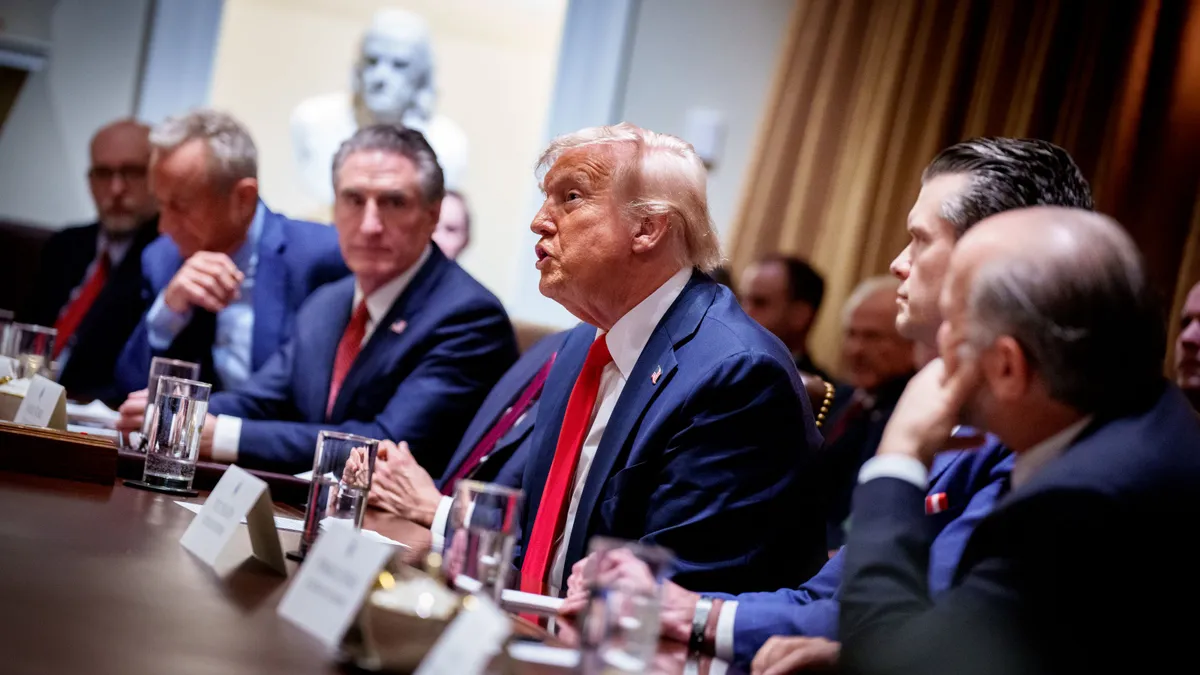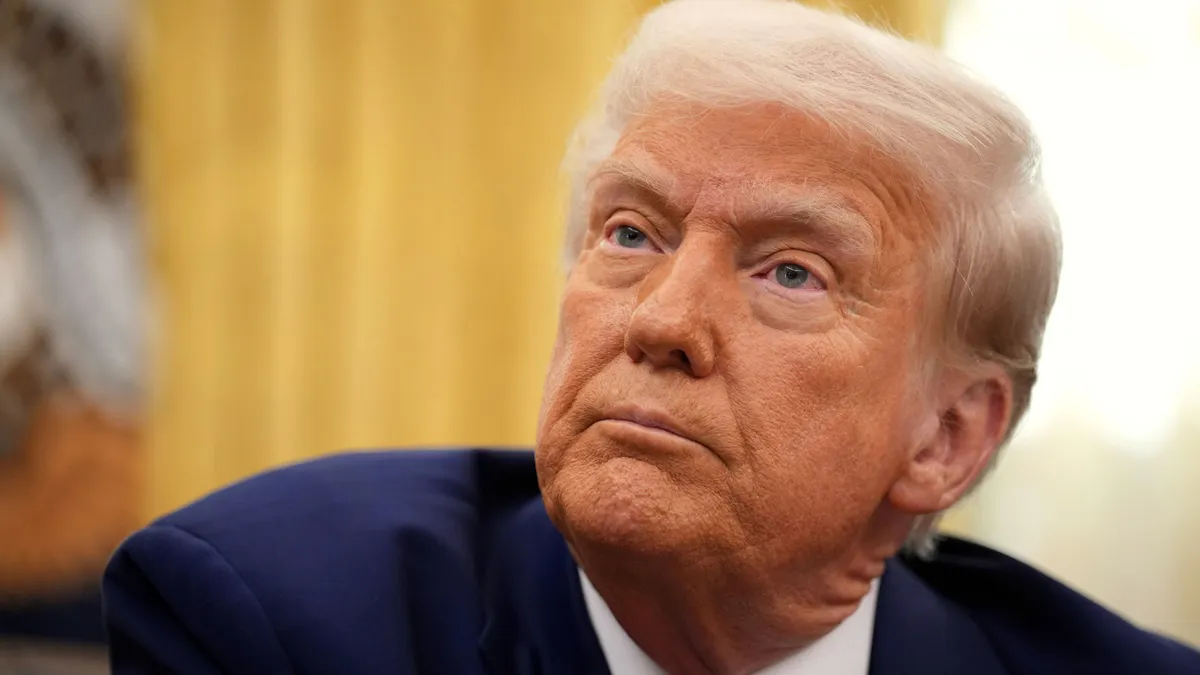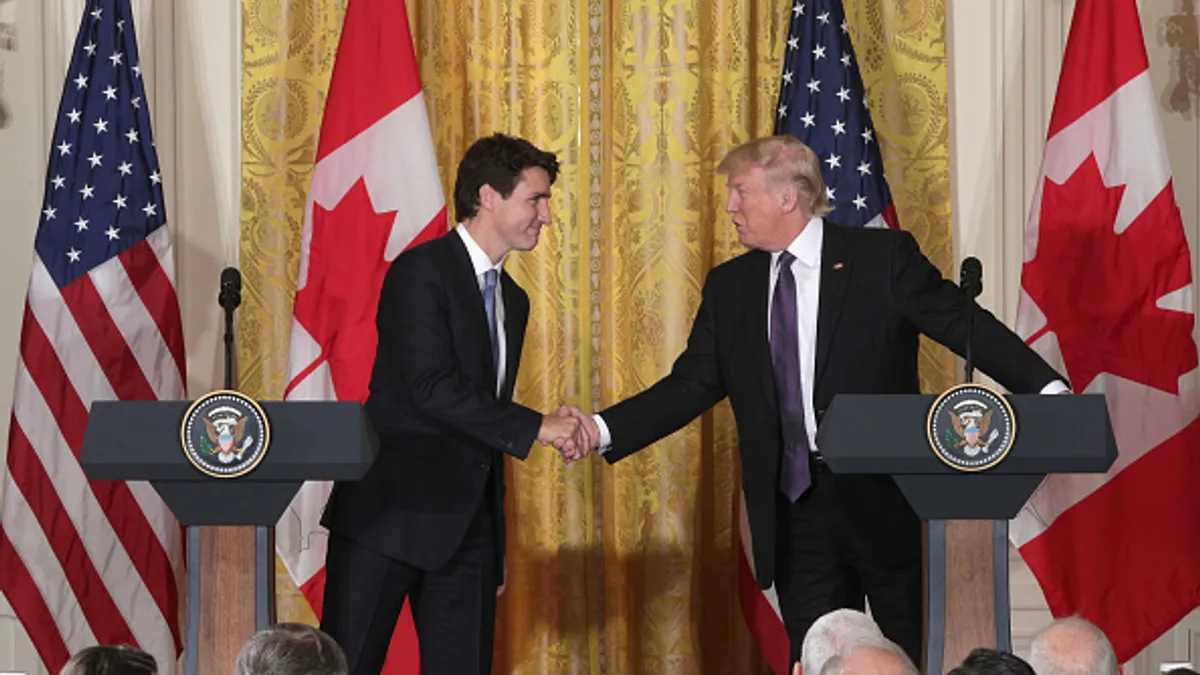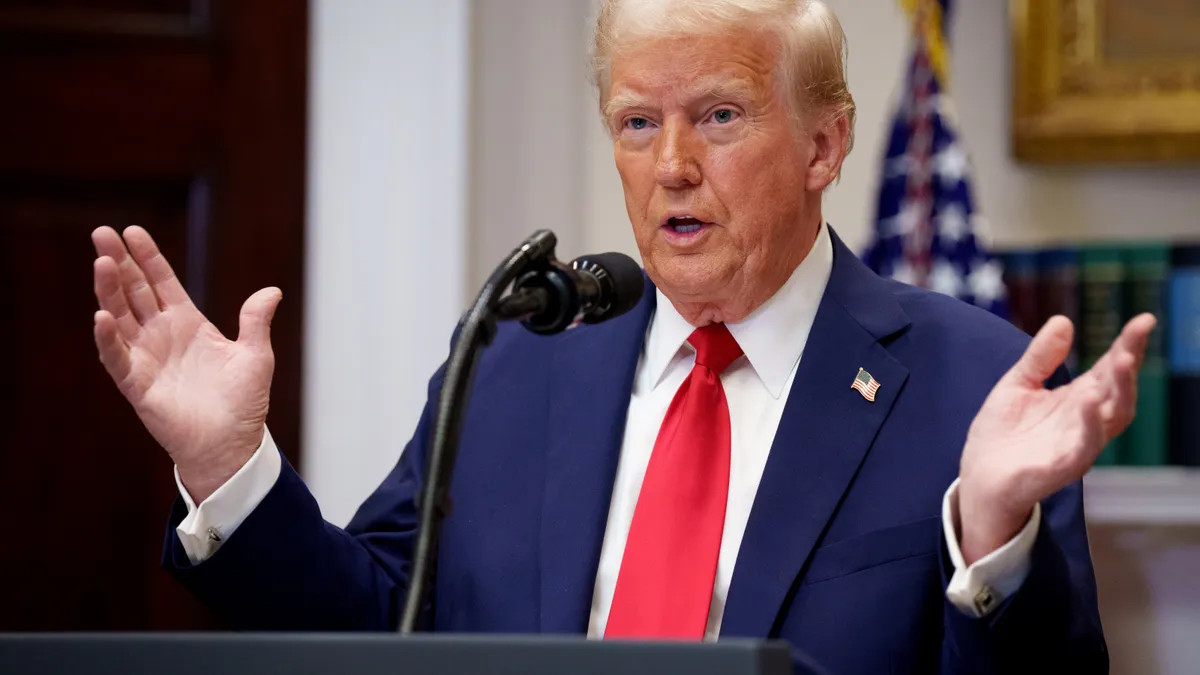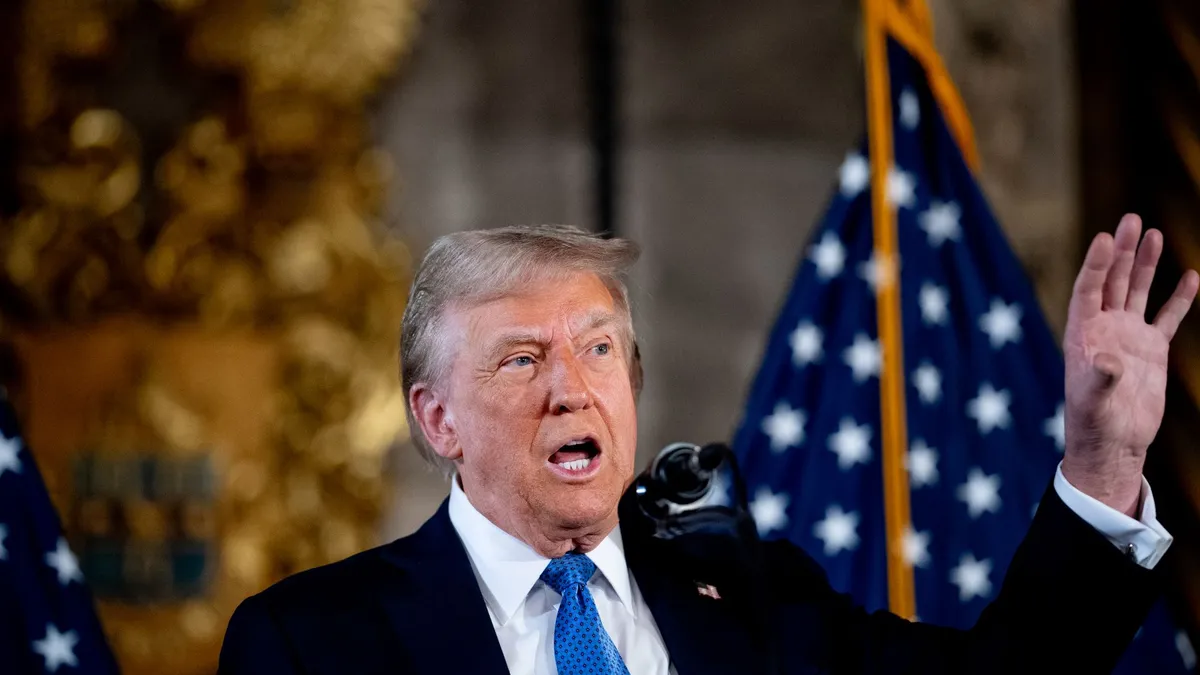The U.S. will implement new tariffs on wood imports as well as derivative products such as upholstered furniture and kitchen cabinets beginning Oct. 14, per an executive order signed by President Donald Trump Monday.
Imports of softwood timber and lumber will face a 10% tariff rate, while upholstered wooden products, including couches, sofas and chairs, will incur a 25% duty. Kitchen cabinets and vanities, as well as parts used in manufacturing those products, will also be subject to a 25% levy, per the order.
Starting Jan. 1, the U.S. will raise the tariff for upholstered furniture to 30% while hiking the rate for kitchen cabinets, vanities and associated parts to 50%.
There are some exceptions based on tariff agreements the U.S. has reached with select trading partners such as the U.K., Japan and the European Union, per the order. Wood and furniture goods imported from the U.K. will face a 10% tariff, while such products from Japan and the EU will incur 15% levies.
In addition, the Trump administration’s previously implemented tariffs on cars and auto parts will supersede tariffs on wood products, the order says. This means if an imported wood product would be subject to both levies, it would only be charged the 25% car and auto part tariff.
Wood product imports will also not be subject to country-specific tariffs implemented under the International Emergency Economic Powers Act, otherwise known as Trump’s “reciprocal tariffs.” The Supreme Court is set to hear arguments on the legality of those levies in November.
The latest order codifies some of the tariffs Trump announced on social media last week while clarifying details such as which products will be covered and when the duties will start. The president originally said the levies would go into effect Oct. 1.
The wood tariffs are the result of a monthslong Section 232 investigation by the Commerce Department. The findings of the review were delivered to Trump on July 1 and found that current import quantities and foreign trade practices related to wood products were a threat to national security, according to Monday’s order. The Trump administration has previously installed Section 232 tariffs on steel and aluminum imports, as well as cars and auto parts.
Beyond implementing tariffs, Monday’s order directs Commerce Secretary Howard Lutnick to create a process for considering an expanded list of goods covered under the new levies as a means of protecting national security.
The Commerce Secretary is also responsible for “determining whether there is a threat of undervaluation of wood product imports” and delivering an updated report on the domestic wood product industry by Oct. 1, 2026, to assess whether additional duties should be implemented.


